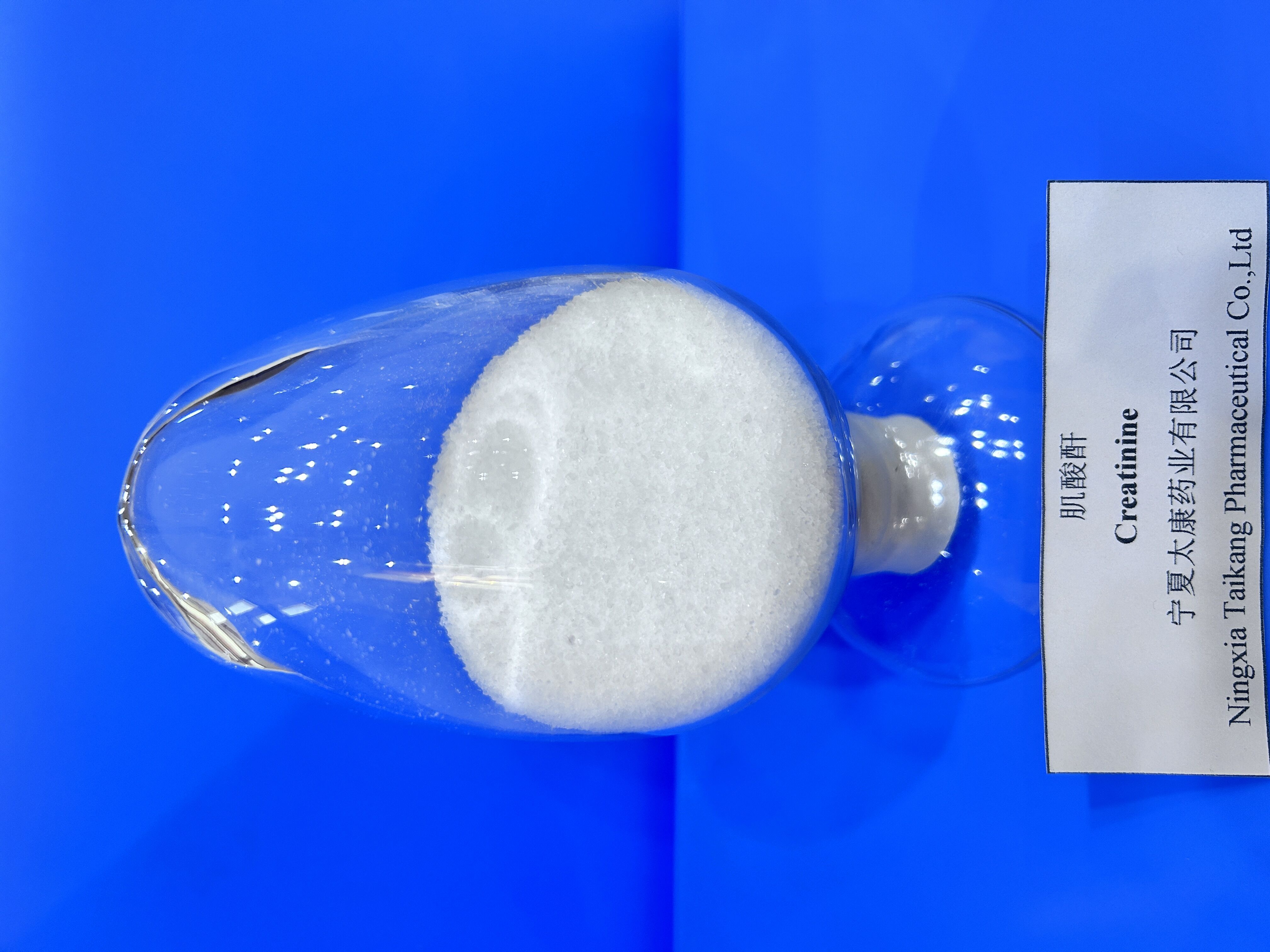- Calcium Carbide
- Calcium Cyanamide
- Dicyandiamide
- Electronic grade Dicyandiamide
- Cyanamide
- Creatine monohydrate
- Aminoguanidine bicarbonate
- Sarcosine
- Creatine Monohydrate
- Creatine
- Creatine HCL
- Creatine Nitrate
- Creatine Ethyl Ester Hydrochloride
- Creatineorotate
- Dicreatine Malate
- Tricreatine Malate
- Di-creatine Citrate
- Tricreatine Citrate
- Creatinine
- Creatine Alpha- Ketoglutarate
- Creatine Gluconate
- Creatine Ethyl Ester Malate
- Creatine Pyruvate
- Magnesium Creatine Chelate
- Creatine Phosphate
- Dicyandiamide-Industrial Grade
- Guanidineacetic Acid
- β-Guanidinopropionic acid
- Guanidine Hydrochloride
- Guanidine Carbonate
- Guanidine Nitrate
- Nitroguanidine
- 1-Methyl-3-Nitroguanidine
- Dicyandiamide-High Purity
- Micro-Dicyandiamide
 Position: Home > Products
Position: Home > Products
Creatinine
White crystalline powder; Soluble in water, slightly soluble in alcohol, almost insoluble in ether, acetone and chloroform.
Stored in a cool, ventilated, dry warehouse, to prevent heat or sunlight exposure, strictly prohibited with harmful goods mixed storage, transport should be covered, to prevent moisture, strictly prohibited with toxic and harmful goods mixed transport.
Creatinine is a byproduct of a chemical compound called creatine, which helps muscles get the energy that they need. As a waste product, creatinine is filtered out of the blood by the kidneys and removed from the body in urine.
A creatinine test measures the amount of this chemical in either the blood or urine. Creatinine levels can provide an indication of how well the kidneys are working.
Usage:
Used in health care products, biochemical reagents, analytical reagents (blood identification), testing renal function. It is also used to treat acute and chronic hepatitis, cirrhosis, jaundice and general liver disorders. It's also an intermediate for adjuvant liver disease.

25Kg carton/paper bucket/paper bag.


